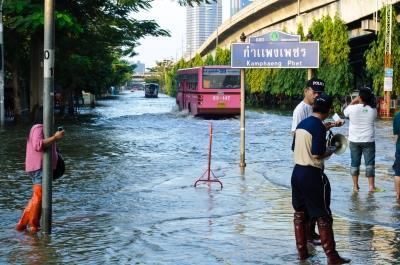RSA, WWF and PwC set our recommendations for handling growing environmental systemic risk

Environmental systemic risk is a “ticking timebomb” and with the industry needs to develop a response urgently, according to joint research by RSA, WWF and PwC.
The research explains that the financial crisis brought home the idea of systemic risk, where one seemingly isolated event or set of events have far-reaching consequences.
The same phenomena is now being identified in the natural environment.
The report highlights a number of examples where extreme weather events in one part of the world had profound effects on businesses, communities and ecosystems hundreds and thousands of miles away. For example, devastating floods in Thailand between July and December 2011 not only resulted in over 800 deaths but also the closure of 10,000 factories. The direct physical damage cost £21bn, but the impact spread far beyond Thailand’s shores.
In response to these issues the report sets out a series of recommendations to address environmental systemic risk in their report, including:
· Involving governments and regulators to tackle the lack of consistency in climate change legislation and implement adaptation and mitigation measures;
· Greater collaboration among insurers and reinsurers, given the interconnectivity of environmental risk, no one company can solve it alone; and
· Using the skills and knowledge of information providers such as academics, customers, NGOs and risk modellers to increase understanding.
Phil Bell, casualty director, RSA Group said: “Systemic risks provide a new and little understood threat to our customers and the insurance industry. The trends of increased globalisation, just-in-time supply chains plus increasing severity and frequency of extreme weather are clear. Action is needed now to deliver improved sustainability for the people, businesses and communities we help protect.”


















No comments yet